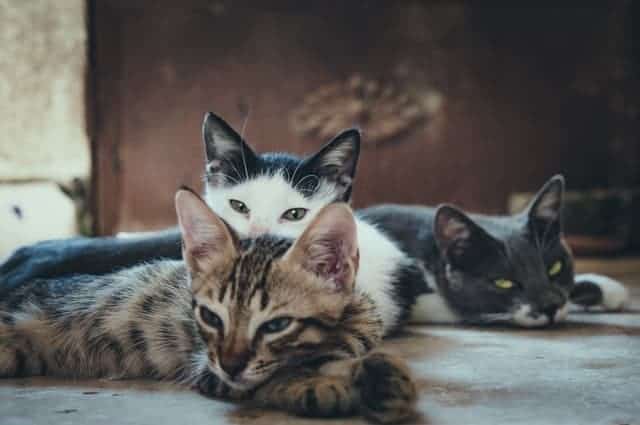
The pancreatitis in cats is a disease more common than we think and many people may suffer from chronic or acute inadvertently without having worse prognosis. Let’s know more about this disease.
Function of the pancreas in cats
The pancreas is a gland that performs an endocrine function, that is, to produce hormones such as insulin and another exocrine function, which is to facilitate the digestion and absorption of food, through digestive enzymes, such as amylase, protease, cellulase or lipase. These enzymes are therefore essential to break down proteins, lipids and polysaccharides.
Symptoms of Pancreatitis in Cats
With pancreatitis in cats, it happens that the symptoms can go unnoticed and the clinical signs are not very specific and common to several gastrointestinal and metabolic diseases of cats or viral, such as feline calicivirus.
These can be manifested in the form of loss of appetite, a decrease in weight, irritability, frequent vomiting, fever and a decrease in daily activity (possibly due to pain), but in the latter, like cats they sleep most of the time , sometimes it is difficult to detect.
Causes Pancreatitis in Cats?
It all starts with poor pancreas function, resulting in decreased pancreatic secretion and a host of harmful local effects, as well as systemic inflammation, in part caused by premature activation of enzymes.
The origin of this dysfunction is today, a field of study and it is not easy to relate cause and effect, but it is known that can be caused by infectious agents associated such as toxoplasmosis and pleurisy infectious peritonitis Felina. Other possible causes can be trauma (a localized blow to the abdominal area) an inadequate diet (high in fat), ischemia, poisoning , it is even possible that some cats have a certain hereditary predisposition.
In any case, the result is that the pancreas secretes enzymes in a localized way to the surrounding area, producing inflammation that can damage both the pancreas itself, and the organs near it.
The pancreatitis in cats can occur chronically, that is, with the passage of time and gradually (it is the most common) or acutely, which occurs suddenly.
Some studies affirm that the Siamese cat and the common European cat may be more prone than other breeds to suffer from this disease.
How is feline pancreatitis detected?
To diagnose pancreatitis, a series of tests and analyzes are performed that will help the veterinarian to confirm or rule out the disease. Of course, the first thing that is usually done is a thorough physical examination, a biochemical hemogram to analyze the levels of pancreatic enzymes in the blood. It is also usually accompanied by a urine analysis and, if necessary, x-ray and ultrasound. (by themselves they are not conclusive)
In cases where we are talking about chronic pancreatitis in cats, performing functional digestive tests can be very effective to analyze poor digestion and absorption in these cases.
One of the most effective diagnostic methods, to confirm that we are facing a case of pancreatitis in cats, is the so-called feline pancreatic lipase immunoreactivity test or also called (PLI or FPLI). It is also the best method to confirm a later recovery, after proper treatment.
What treatment is the most appropriate?

The first thing to say is that it is a disease with difficult treatment, which will be more aimed at improving the health of the cat, trying to stabilize and recover its effects, improving the quality of life of the cat.
The main basic objectives of the treatment carried out by veterinarians are:
– Correct dehydration in the cat.
– Relieve any pain you may have.
– Control of vomiting
– Provide nutritional support, depending on the mood.
– Prevent possible complications.
In many cases, cats that suffer from pancreatitis are below their normal weight, and in more extreme cases, they can present anorexia. In some cases, before any treatment, they proceed to a hospitalization that allows (sometimes intravenously), the provision of fluids and medications, in order to stabilize their medical condition. If the cat is vomiting, medication is given that can correct the problem, as well as nutritional supplements, which promote recovery. Veterinarians may sometimes use an IV nutrient tube or feeding tube to stabilize the situation.
We must not forget that feline pancreatitis is a disease to take into account, as it can be complicated by diabetes and liver diseases.
To say that this article is only informative and any prescribing must always be supervised by a veterinarian , so if you detect that your cat is not well, we will always recommend that you put yourself in his hands .






